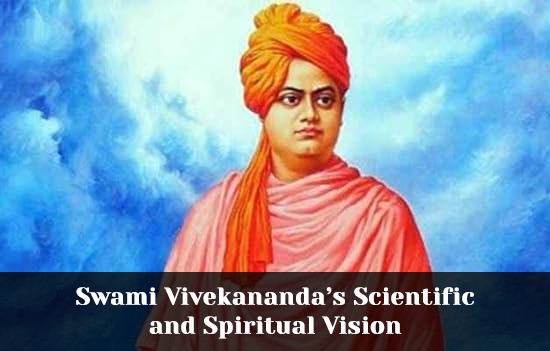
Follow WOWNEWS 24x7 on:

In a world increasingly divided between empirical logic and spiritual belief, Swami Vivekananda’s vision offers a rare and powerful synthesis. More than a century after his iconic address at the Parliament of Religions in Chicago, his teachings continue to resonate—especially in today’s India, where the intersection of science, ethics, and consciousness is being re-examined. A recent feature published on September 13, 2025, revisits Vivekananda’s philosophical framework, highlighting how his ideas remain relevant to both national identity and global discourse.
Vivekananda’s insights challenge the notion that science and spirituality are opposing forces. Instead, he proposed that both are complementary paths to understanding the unity of existence—a concept that modern physics and consciousness studies are only beginning to explore.
Key highlights from Vivekananda’s integrated worldview
- Vivekananda defined science as the pursuit of unity, aligning it with Vedantic philosophy
- He believed that ethics and reason must guide both scientific inquiry and spiritual practice
- His teachings emphasized service, or seva, as a spiritual act rooted in universal compassion
- Vivekananda’s vision of Hindutva was civilizational, not sectarian—focused on unity amidst diversity
- He admired Darwin’s theory of evolution but extended it to include the evolution of consciousness
- His ideas anticipated modern quests for a unified theory in physics and holistic models of human development
Science As The Search For Oneness
Vivekananda’s statement that science is the discovery of unity finds striking parallels in contemporary physics. From Einstein’s dream of a Grand Unified Theory to Stephen Hawking’s pursuit of a Theory of Everything, the scientific community has long sought to explain the universe through a single, coherent framework. Vivekananda’s Vedantic lens viewed all phenomena—material or mental—as expressions of an underlying oneness.
He argued that true knowledge must converge, whether it arises from laboratory experiments or meditative introspection. This convergence, he believed, was not just intellectual but ethical, requiring humility, discipline, and service.
Beyond Darwin: Consciousness As Evolution
While Vivekananda respected Darwin’s contributions to biology, he also pointed out their limitations. For him, evolution was not merely physical—it was also spiritual. He envisioned a progression from instinct to intellect to intuition, culminating in self-realization. This idea aligns with modern theories in consciousness studies, which explore how awareness evolves across species and individuals.
His interpretation of evolution emphasized inner growth, moral clarity, and the expansion of empathy—qualities often overlooked in scientific discourse but essential to human flourishing.
Seva As A Scientific-Spiritual Practice
One of Vivekananda’s most transformative contributions was his reframing of service. He taught that seva was not charity but a spiritual discipline that connected the giver and receiver in a shared divine bond. In this view, helping others is not an act of superiority but a recognition of oneness.
This philosophy has influenced generations of social reformers, educators, and healthcare workers in India. It also offers a model for integrating ethics into scientific and technological advancement—ensuring that progress serves humanity rather than isolates it.
Hindutva As Civilizational Ethos
Vivekananda’s concept of Hindutva was rooted in India’s civilizational spirit, not religious exclusivity. He saw it as a way of thinking that embraced diversity, questioned dogma, and upheld ethical inquiry. This broader definition aligns with the scientific method, which values skepticism, evidence, and universal principles.
His teachings remind us that India’s spiritual heritage is not anti-science—it is deeply rational, inclusive, and forward-looking.
Mixing Intention With Inquiry
Swami Vivekananda’s vision continues to inspire a generation seeking meaning beyond metrics. His synthesis of science and spirituality offers a framework for personal growth, societal reform, and global harmony. In an age of rapid technological change and existential uncertainty, his message is clear: knowledge must serve unity, and progress must be rooted in compassion.
Sources: NewsBharati, Esamskriti, India Today



